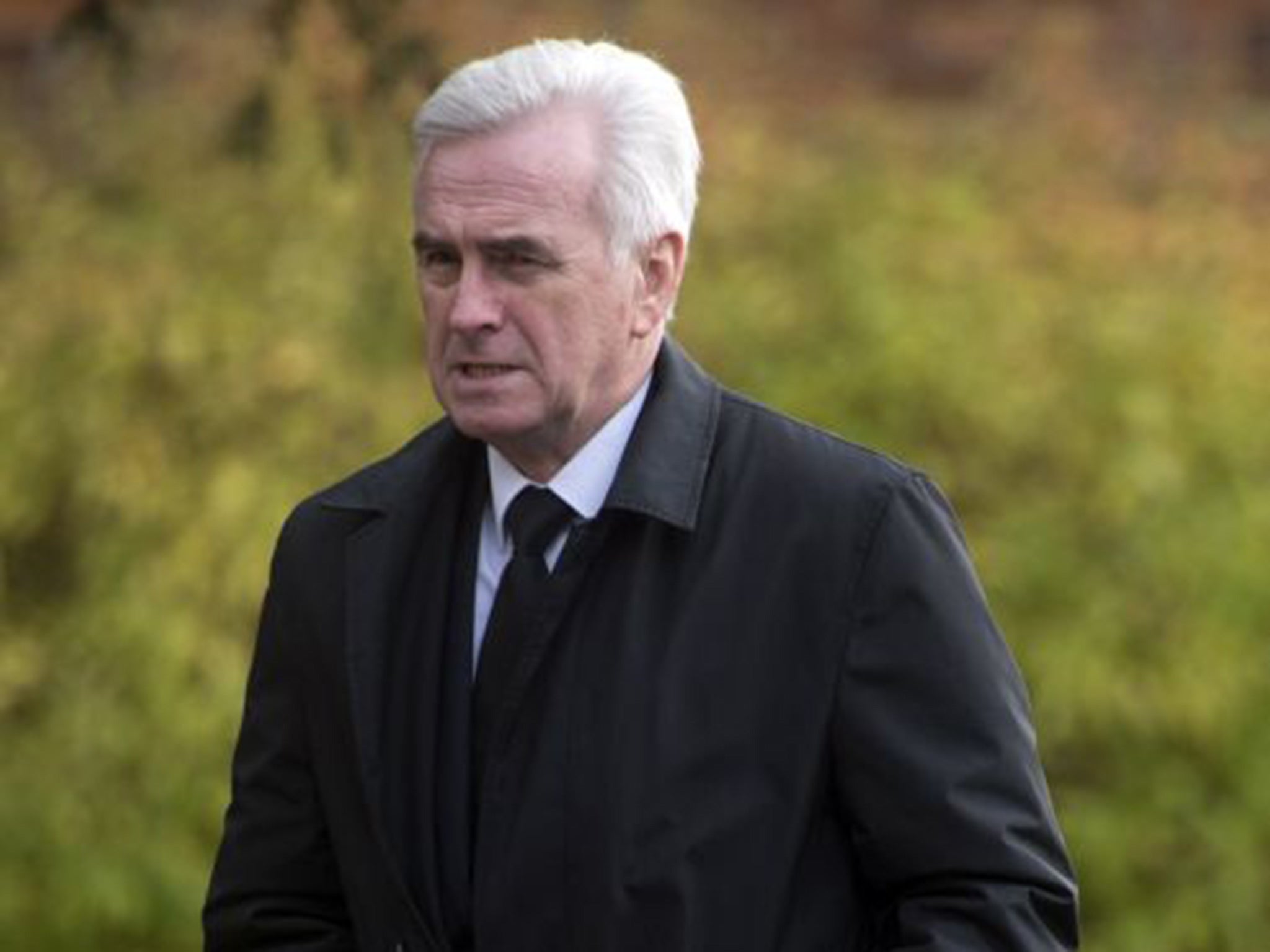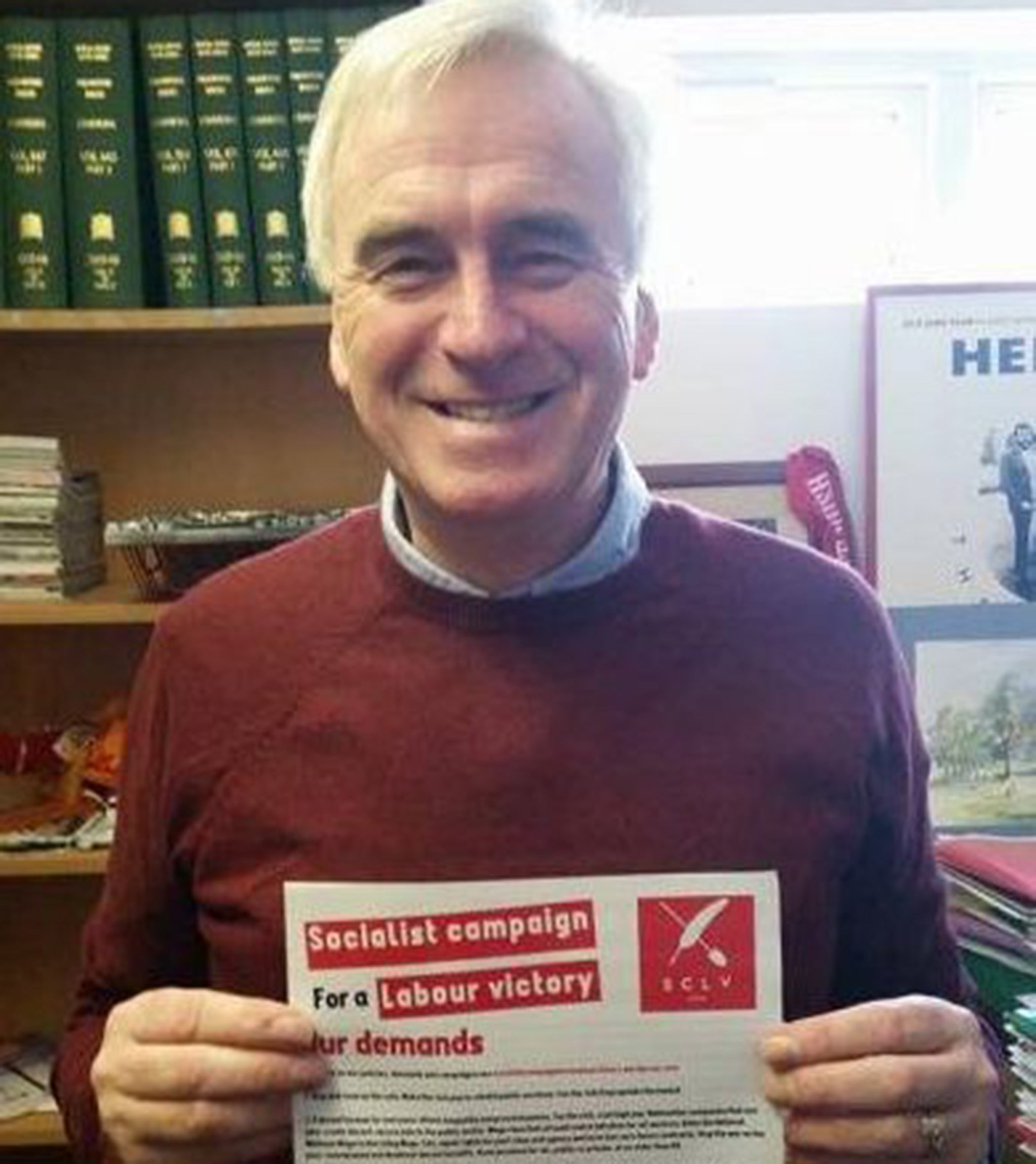John McDonnell insists he did not read leaflet he signed calling for MI5 to be disbanded
McDonnell's name had been included as a signatory on a list of “demands” compiled by a group called the Socialist Campaign for a Labour Victory ahead of the last General Election

Labour’s Shadow Chancellor John McDonnell insisted that he had not fully read a leaflet that he had posed with and signed that called for MI5 to be disbanded.
The controversy emerged after it was revealed that Mr McDonnell's name had been included as a signatory on a list of “demands” compiled by a group called the Socialist Campaign for a Labour Victory ahead of the last General Election.
The final paragraph of the 12-point document stated that a future Labour Government should “Disband MI5 and special police squads, disarm the police.” The letter was dug up by The Sun newspaper yesterday, and used to highlight the supposed weak national security credentials of Jeremy Corbyn’s team following the Paris attacks.
At first the shadow chancellor’s office insisted that he had never signed the statement, and did not agree with its sentiments. He had merely backed the ‘principles’ of the group which was to campaign for a Labour victory from the left, his office claimed.

“The letter has never been put in front of John and he’s never signed it,” a spokesman said, pointing out that he had supported extra funding for the security services in the wake of the Paris terror attacks.
Sources close to Mr McDonnell suggested his name might have been included in the list because of a cut and paste error. “These things are normally websites managed by one person and it’s their little hobby horse and it’s not very credible … It’s probably people getting a little bit carried away and just whacking something up.”
But a photograph later emerged of Mr McDonnell smiling and posing with what appeared to be the document. A spokesperson for Mr McDonnell then said he was unaware of the exact nature of the “demands” in the letter.
“John posed in good faith to stand with a copy of what he thought were the principles he signed up to and not the demands which he had never seen before yesterday,” he said.
“To reiterate John does not share these views. Only this week he has called for additional funding for the security services to support them in their vital work in defending our country.”
The SCLV said McDonnell’s signature was “attached to the general statement of principles, which he signed up to, and not to the list of specific demands, which he did not sign up to”.
“The demands were a matter of debate and discussion in the campaign and the movement; the general statement was the only thing people signed up to,” it said.
The emergence of document – and Mr McDonnell’s apparent if unwitting endorsement – is uncomfortable for the Labour leadership following a series of missteps on national security in the wake of the attack in Paris.
Mr Corbyn was forced to backtrack on comments he made suggesting that police should not open fire on armed terrorists and he was also forced to distance himself from the Stop the War coalition which claimed that Western foreign policy had been partly to blame for attacks on the French capital.
Join our commenting forum
Join thought-provoking conversations, follow other Independent readers and see their replies
Comments
Bookmark popover
Removed from bookmarks